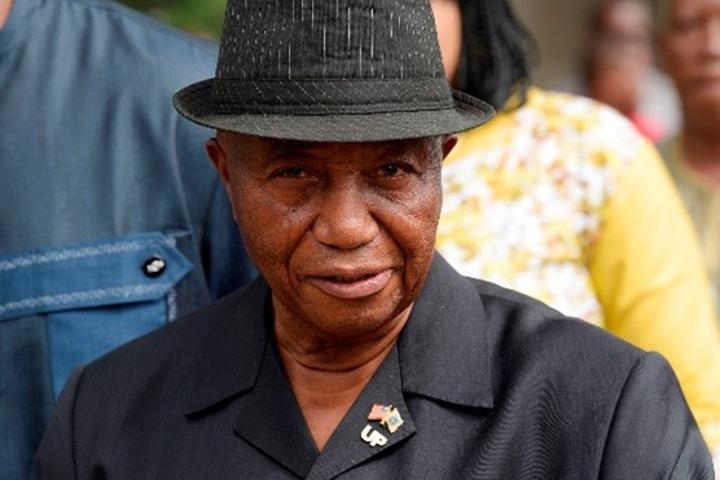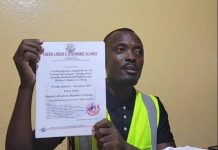Africa-Press – Liberia. In his 2020 article “What Racism Cost Us All,” written for the International Monetary Fund, Joseph Losavio bemoaned the significant economic cost associated with racism.
“Systemic racism,” he said, “is a global problem. It is real, and a robust moral argument for addressing it exists. He added, however, that “one factor that is often ignored in this critical conversation is the broader economic dimension. He said because it prevents people from making the most of their economic potential. Systemic racism, he continues, carries significant economic costs. A less racist society, Losavio noted, can be an economically stronger one.
This is exactly the situation Liberia is facing. The country’s racist clause enshrined in its 1986 Constitution has made many non-negros or persons of non-negro decent rethink their investment in the country.
It is non-debatable that Liberia has been and remains a racist country since its independence in 1847, at least according to Article 27 (b) of its Constitution, which excludes non-black or anyone who does not have a black ancestry from becoming a citizen.
Article 27 (b) states that: “To preserve, foster and maintain the positive Liberian culture, values, and character, only persons who are Negroes or of Negro descent shall qualify by birth or by naturalization to be citizens of Liberia.”
The law discriminates based on race. To say that only persons who are “Negro” (black), regardless of whether they were born on Liberian soil, jus soli, or abroad to Liberian parents, jus sanguinis, “shall qualify by birth or by naturalization to be citizens of Liberia,” is racist- plain and simple.
According to Wikipedia, “Racism is discrimination and prejudice against people based on their race or ethnicity.” It further explained that racism can be present in social actions, practices, or political systems that support the expression of prejudice or aversion in discriminatory practices.”
Unlike Western countries, Liberia’s racism is institutional because it is written boldly in its constitution. It perpetuates discrimination against non-negros and people of non-negro descent on the basis that they are not black or have no black ancestry. Legal institutions and systems do this.
This not only discourages non-negros or persons of non-negro descent who have lived all their lives in the country from making significant investment decisions but also prevents non-negros who were born here and have no other place as a home from becoming citizens.
These individuals, despite their strong family and economic ties with Liberia, would rather choose to invest in countries that are more welcoming and embracing than Liberia for fear that their descendants will always be denied the right to succeed them because they are not citizens.
Today, neighboring Ivory Coast, Sierra Leone, and others have opened their countries, granting citizenship to non-negroes in their pursuit of economic growth and development, while Liberia lies at the bottom due to its racist laws.
From its early foundation, the clause was inserted into the Liberian constitution by the colony’s founding fathers as a refuge for free people of color and, later, former slaves to prevent economically powerful communities from obtaining political power.
However, today, this law has no significance, but it remains in place to protect a privileged few while impoverishing the entire country, and that privileged few are those who are custodians of lands, only willing to lease to non-negros.
In 2022, the law was amended to remove discrimination in granting citizenship to children born outside Liberia. However, the amended law retained the statutory attribution of citizenship to every child born in Liberia (if of “negro descent”); the 1986 Constitution, meanwhile, provides explicitly for attribution of citizenship at birth only if either the father or mother is a Liberian citizen.
This law intends to prohibit dual citizenship for adults at all costs. A referendum to amend the Constitution to permit dual citizenship in all cases (among other propositions) failed in 2020. However, many blame the past regime for not doing much to publicize the proposition.
The 2022 amendments to the law allow a Liberian citizen who acquires another citizenship to retain Liberian citizenship. This amendment follows a 2019 Supreme Court decision that ruled that the statutory provision for automatic loss of citizenship was unconstitutional.
However, in the case of a person with one Liberian and one foreign parent, the Constitution requires the person to renounce the other citizenship when he or she turns 18 to retain his or her Liberian citizenship.
Until Liberian politicians and policymakers see reasons to scrap this racist law, which is nothing but discriminatory due to race, the country’s development will continue to be hindered. A more racist society witnesses less economic growth and development, and such has been the case in Liberia.
For More News And Analysis About Liberia Follow Africa-Press






